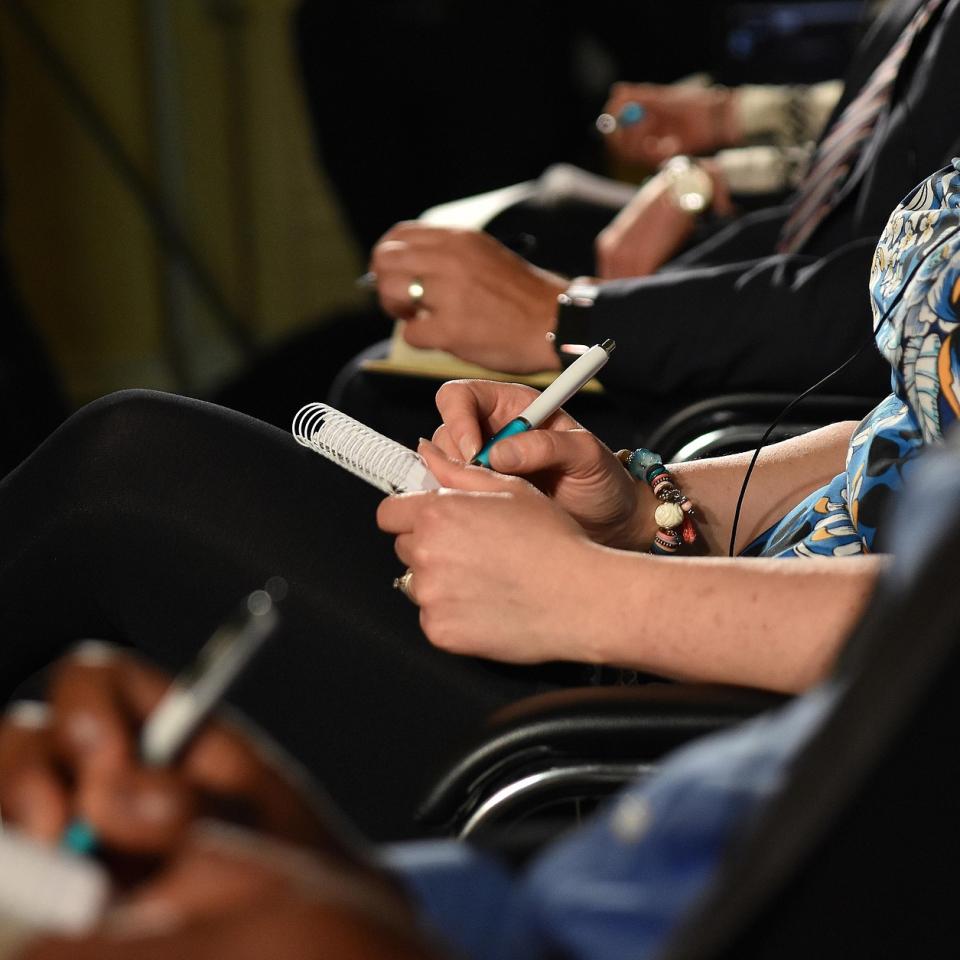
WAHA second symposium: New horizons for postgraduate study in Wales
Professors Mary-Ann Constantine and Kirsti Bohata, co-chairs of the Wales Arts and Humanities Alliance (WAHA), share key insights from the WAHA inaugural symposium on 24 October 2025.
7 November 2025
On 24th October Bangor University hosted the second Wales Arts and Humanities Alliance (WAHA) Symposium. This proved to be another stimulating and inspiring event, bringing together a range of people working to promote the value of the Arts and Humanities in Wales. The event was organised by two WAHA colleagues from Bangor’s School of Arts, Culture and Languages, Ruth McElroy (Professor of Creative Industries and Head of School) and Sue Niebrzydowski (Professor in Medieval Literature and Dean of Postgraduate Research), and was supported by the Wales Innovation Network. The event was well attended by colleagues from across Wales, both in person and online (with some getting up very early indeed to be present on the day).
The main focus of the symposium was on postgraduate provision in the Arts and Humanities in Wales – a subject inspired by the recent success of WAHA’s all- Wales’ bid ‘Lles’, and other bids from Welsh universities, including the Bangor-led, ‘Celtic Crescent’, in accessing funding for new doctoral research through the AHRC’s Focal Award Scheme. The challenge-driven focal awards sit alongside the AHRC’s Landscape funding for postgraduate research.
Throughout the day, discussions captured the excitement of planning collaborative, flexible doctoral training and networking that will equip A&H postgraduates to make genuinely meaningful contributions to society. There was also a strong awareness of the real-world challenges such as time, money, and organisation that setting up such a platform will entail.
Colleagues were welcomed by Professor Paul Spencer, PVC for Research at Bangor University, in an opening address that acknowledged successes and challenges in the current postgraduate research landscape, and by WAHA’s Co-Chair, Mary-Ann Constantine. There followed a really interesting discussion involving Jaideep Gupte, AHRC’s Director of Research, Strategy and Innovation, Harriet Barnes, Director of Research, Innovation and Skills at Medr, and Paul Osbadleston, Interim Head of Sector Development, Creative Wales. All three responded to questions about the nature, purpose and direction of postgraduate research from the perspective of their different organisations and sectors.
Focused both on challenges and examples of good practice, this session set up many of the themes debated throughout the rest of the day:
- The advantages of operating with a collective voice achieved through better and deeper collaborations across institutions.
- The distinctive and globally relevant dimensions of A&H research in Wales.
- The importance of place-based structures which allow A&H research to be locally grounded as well as nationally relevant; this also tied in with notions of ‘civic mission’.
- How to engage with broader opinions about the ‘public value’ of such research.
- The challenges of devising flexible models for post-16 participation in education, tackling inequity of access, and making education available at different life stages.
- Envisaging and preparing for employment possibilities outside of traditional academic trajectories, by collaborating with businesses and organisations, particularly in the creative industries, such as media, publishing and design.
- The challenges of AI to traditional A&H areas involving artistic and literary skills.
- The costs, open and hidden, of creating successful partnerships, whether cross-institutional or between HEIs, businesses and communities, particularly in the light of huge reductions in the labour force at many universities.
Session two provided an energy-boost in the form of short presentations from a group of current PhD candidates at Bangor University. The professionalism and enthusiasm with which they presented research on topics from football clubs to sound art and language use, and from graveyards to perceptions of menopause, reminded everyone present of why doctoral research matters.
After lunch, Professor Ross Roberts (School of Psychology and Sports Science, Bangor University) introduced the Welsh Graduate School for the Social Sciences – an established doctoral platform serving the whole of Wales, and a model from which WAHA and the other doctoral schemes could learn. This was an excellent example of sharing practice and knowledge- exchange between different UKRI-funded doctoral programmes. He gave us some good insights into the mechanisms for cross-institutional collaboration and alerted us to some of the difficulties they have faced. WGSSS colleagues present in the room also contributed useful ideas to the break-out discussions which concluded the day.
Those break-out discussions focused on the practicalities of shaping and organising the structures which will help to deliver opportunities for a new, Wales-based generation of doctoral students. WAHA is delighted to be a key player in this new and inspiring landscape of graduate possibilities, and congratulates the organisers on an excellent and fulfilling day.
